Abstract
African-American men bear a greater burden of type-2 diabetes and its associated complications. The purpose of this analysis was to explore in greater depth themes that emerged in illness narratives of a small sample of African-American men living with type-2 diabetes. The primary theme that is the focus of this article is the lived experience of black manhood and masculinity and its intersection with the challenges of diabetes self-management. In-depth interviews with 16 African-American men who had established type-2 diabetes yielded thematic analyses of four questions: (1) What do you fear most about having diabetes? (2) In what ways have people in your life treated you differently after learning you have diabetes? (3) In what ways has knowing you have diabetes affected the way you see yourself? and (4) What are some reactions when you tell people you have diabetes? This preliminary study suggests that the requirements of diabetes self-management often run counter to the traditional sex roles and learned behaviors of African-American men, and this can contribute to nonadherence to medications and poor glycemic control. Gender identity is a key cultural factor that influences health-related behaviors, including how men with type-2 diabetes engage with the healthcare system and manage their diabetes. Understanding African-American men's gender identity is an important component of cultural competency for physicians and can be consequential in patient outcomes.
Full text
PDF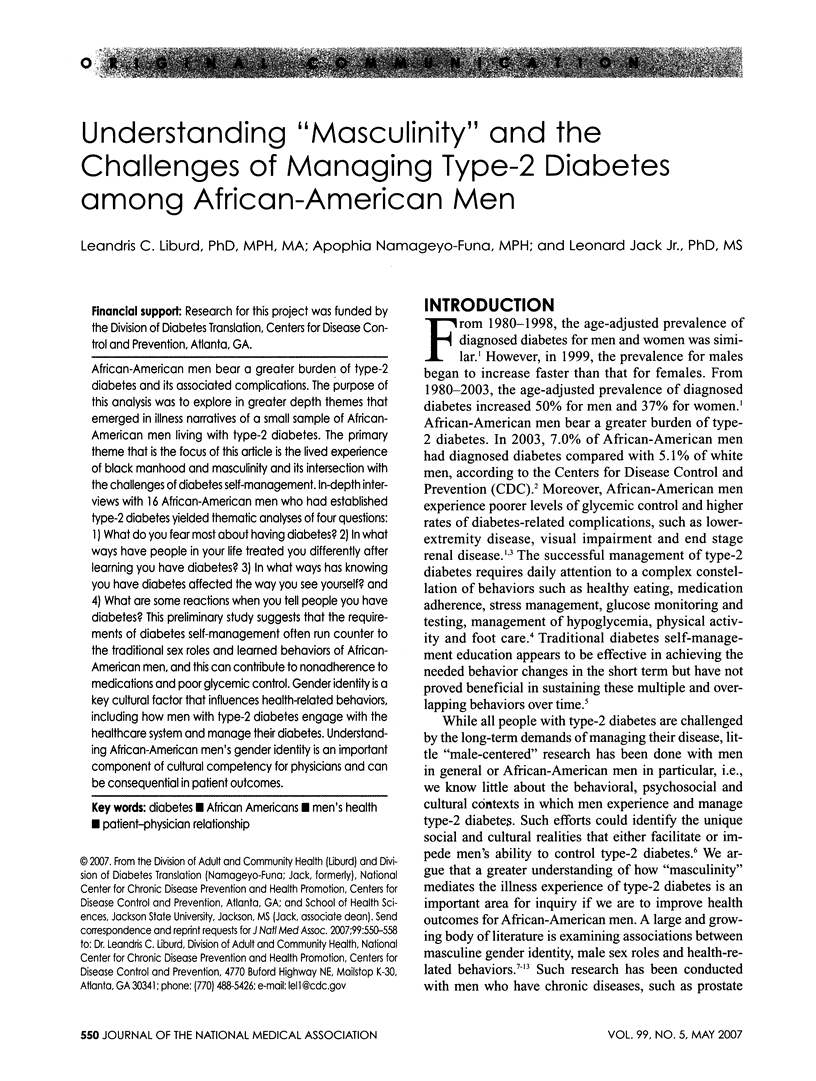
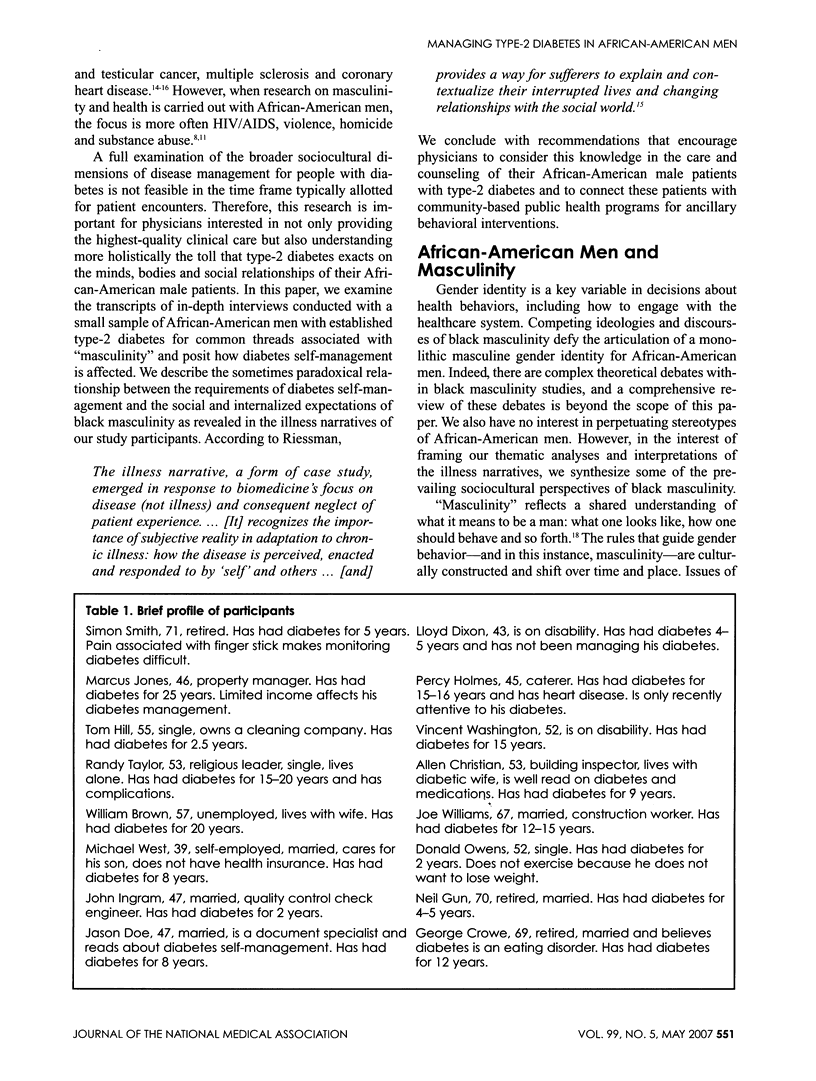
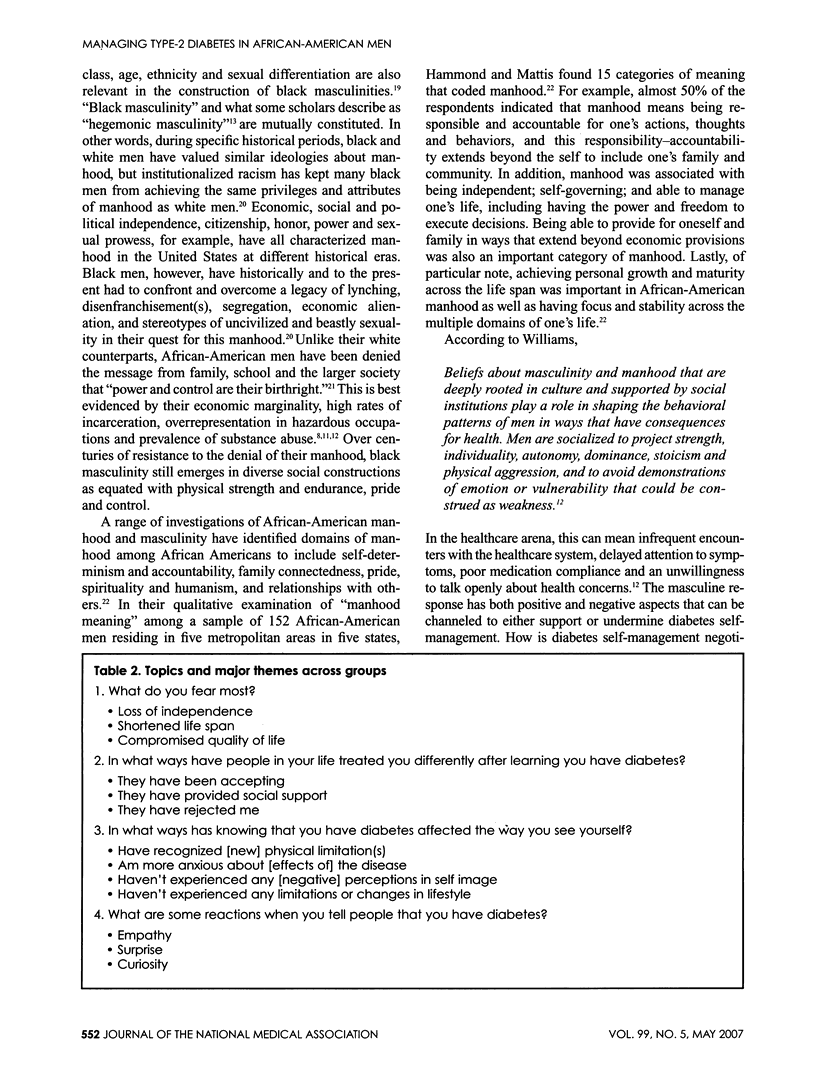
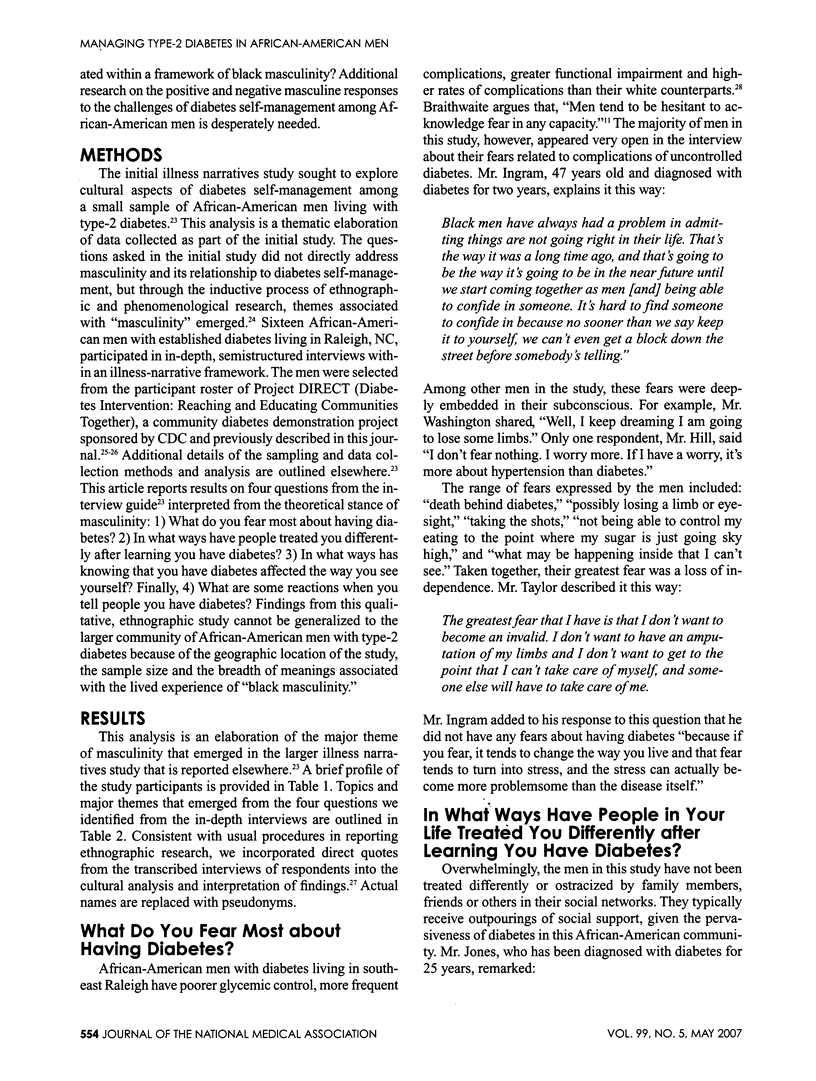
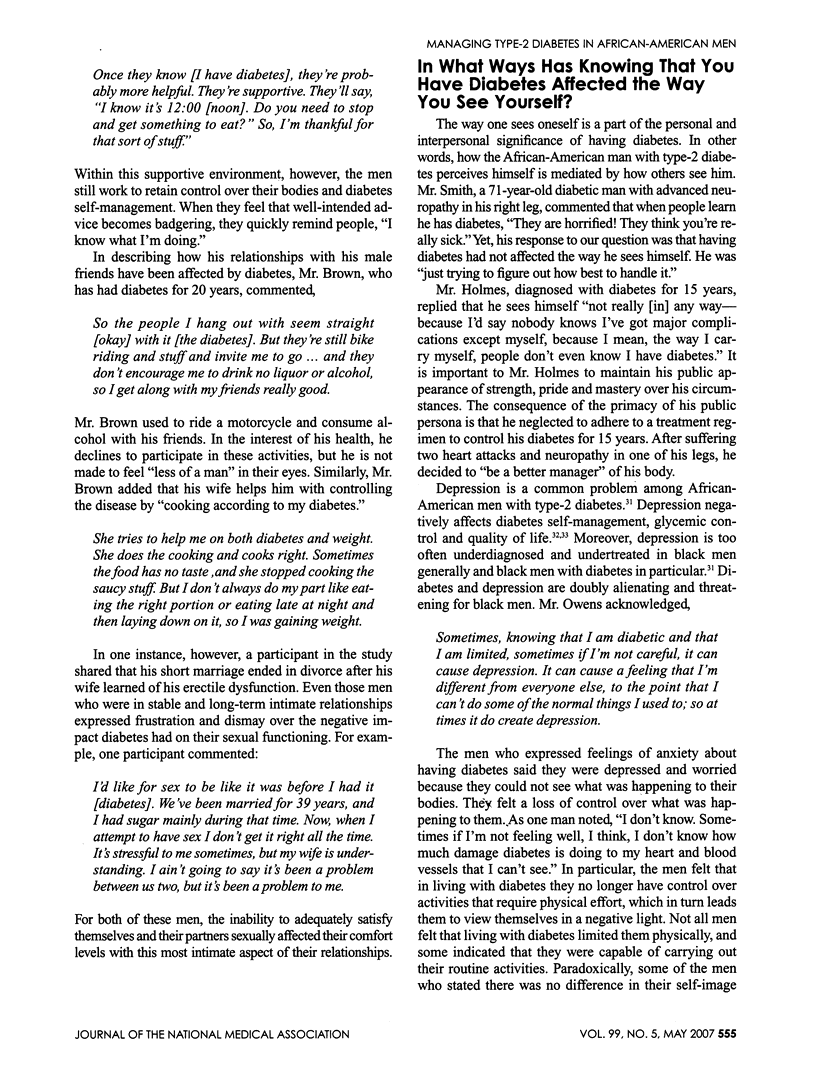
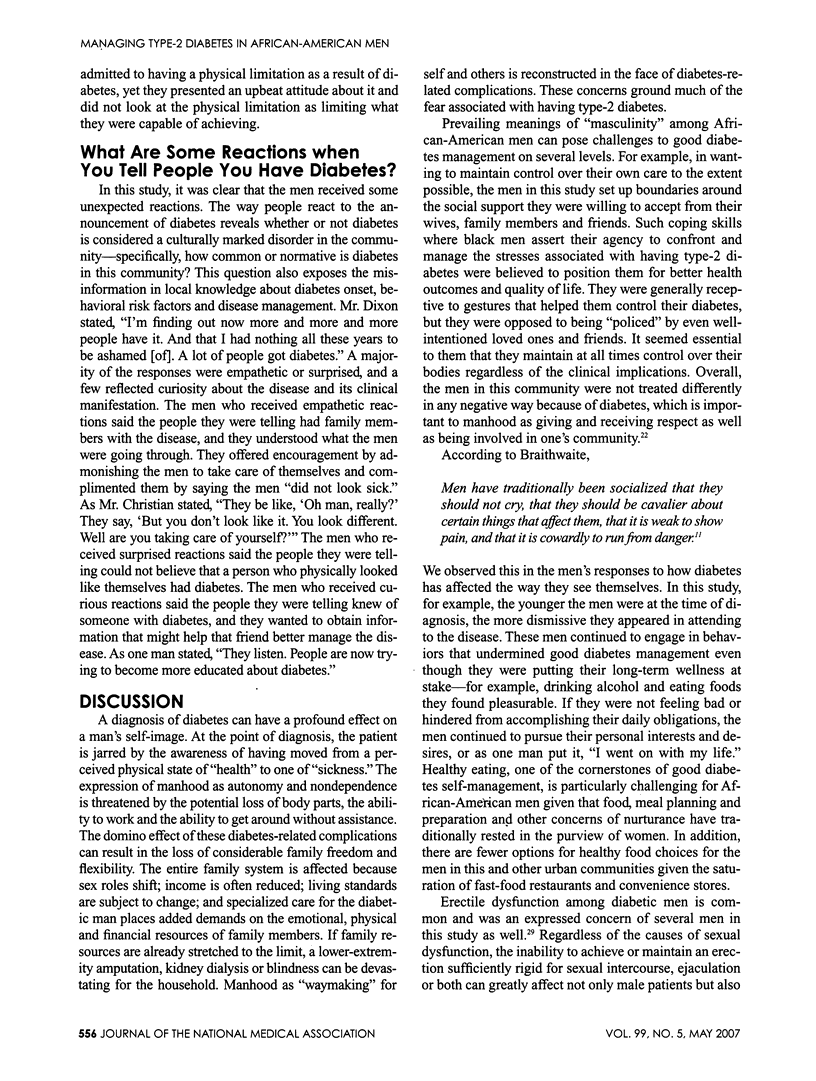
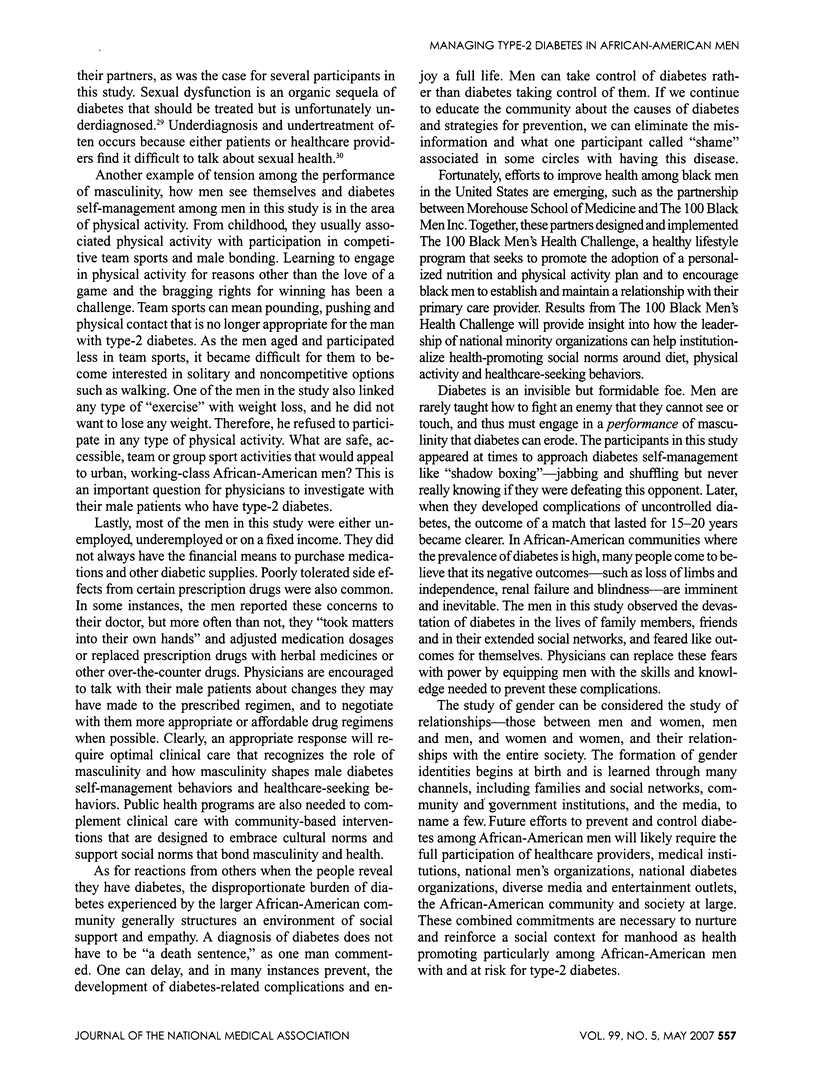
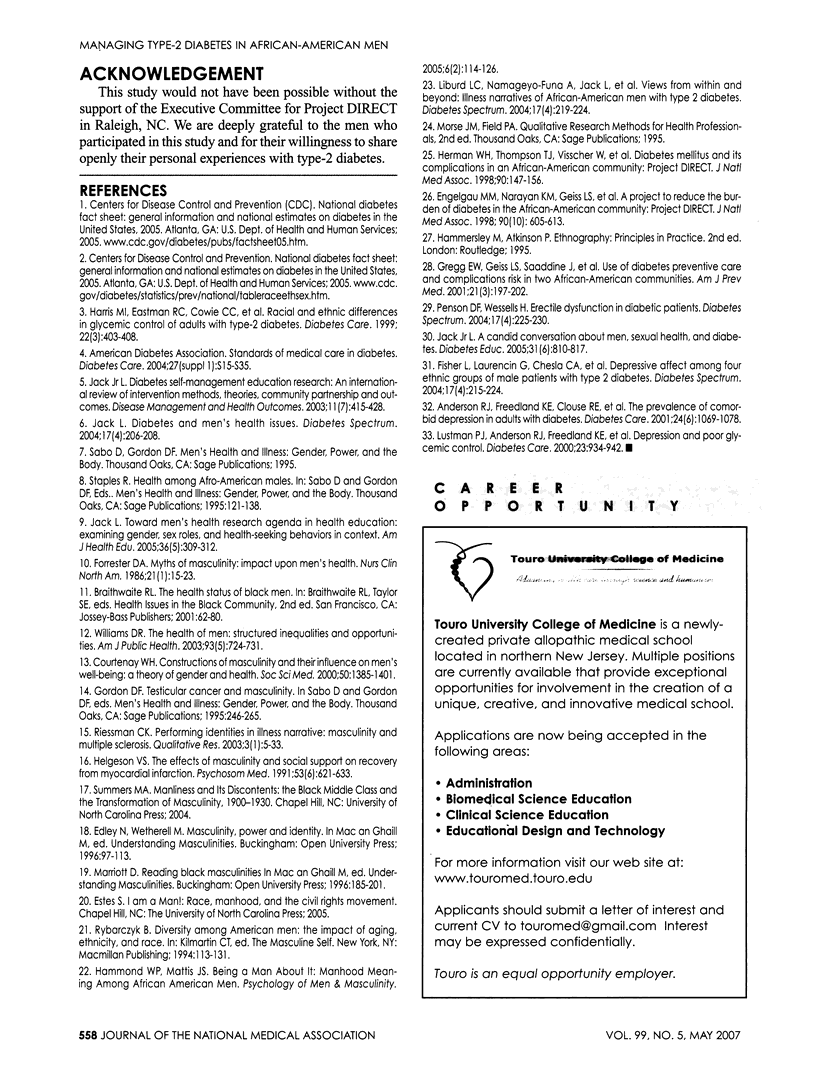
Selected References
These references are in PubMed. This may not be the complete list of references from this article.
- Anderson R. J., Freedland K. E., Clouse R. E., Lustman P. J. The prevalence of comorbid depression in adults with diabetes: a meta-analysis. Diabetes Care. 2001 Jun;24(6):1069–1078. doi: 10.2337/diacare.24.6.1069. [DOI] [PubMed] [Google Scholar]
- Courtenay W. H. Constructions of masculinity and their influence on men's well-being: a theory of gender and health. Soc Sci Med. 2000 May;50(10):1385–1401. doi: 10.1016/s0277-9536(99)00390-1. [DOI] [PubMed] [Google Scholar]
- Engelgau M. M., Narayan K. M., Geiss L. S., Thompson T. J., Beckles G. L., Lopez L., Hartwell T., Visscher W., Liburd L. A project to reduce the burden of diabetes in the African-American Community: Project DIRECT. J Natl Med Assoc. 1998 Oct;90(10):605–613. [PMC free article] [PubMed] [Google Scholar]
- Forrester D. A. Myths of masculinity. Impact upon men's health. Nurs Clin North Am. 1986 Mar;21(1):15–23. [PubMed] [Google Scholar]
- Gregg E. W., Geiss L. S., Saaddine J., Fagot-Campagna A., Beckles G., Parker C., Visscher W., Hartwell T., Liburd L., Narayan K. M. Use of diabetes preventive care and complications risk in two African-American communities. Am J Prev Med. 2001 Oct;21(3):197–202. doi: 10.1016/s0749-3797(01)00351-8. [DOI] [PubMed] [Google Scholar]
- Harris M. I., Eastman R. C., Cowie C. C., Flegal K. M., Eberhardt M. S. Racial and ethnic differences in glycemic control of adults with type 2 diabetes. Diabetes Care. 1999 Mar;22(3):403–408. doi: 10.2337/diacare.22.3.403. [DOI] [PubMed] [Google Scholar]
- Helgeson V. S. The effects of masculinity and social support on recovery from myocardial infarction. Psychosom Med. 1991 Nov-Dec;53(6):621–633. doi: 10.1097/00006842-199111000-00004. [DOI] [PubMed] [Google Scholar]
- Herman W. H., Thompson T. J., Visscher W., Aubert R. E., Engelgau M. M., Liburd L., Watson D. J., Hartwell T. Diabetes mellitus and its complications in an African-American community: project DIRECT. J Natl Med Assoc. 1998 Mar;90(3):147–156. [PMC free article] [PubMed] [Google Scholar]
- Jack Leonard., Jr A candid conversation about men, sexual health, and diabetes. Diabetes Educ. 2005 Nov-Dec;31(6):810–817. doi: 10.1177/0145721705281561. [DOI] [PubMed] [Google Scholar]
- Lustman P. J., Anderson R. J., Freedland K. E., de Groot M., Carney R. M., Clouse R. E. Depression and poor glycemic control: a meta-analytic review of the literature. Diabetes Care. 2000 Jul;23(7):934–942. doi: 10.2337/diacare.23.7.934. [DOI] [PubMed] [Google Scholar]
- Williams David R. The health of men: structured inequalities and opportunities. Am J Public Health. 2003 May;93(5):724–731. doi: 10.2105/ajph.93.5.724. [DOI] [PMC free article] [PubMed] [Google Scholar]


